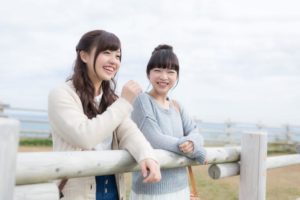“shounen” vs. “nenshou”:Most Learners Don’t Know the Difference
What is the difference between “少年(shounen) and 年少(nenshou)”? Which is used as the meaning of “boy”? After reading this, you would be answering this question. Let me introduce what their subtle differences are and how you correctly use them such as native speakers today!
少年 (shounen)
Boy (less than 18) / 少年 / 소년 / Thiếu niên (chỉ dùng cho bé trai)
“少年 (shounen)” means “Boy” and which has been used as the meaning of “a male child, from birth to full growth, especially one less than 18 years of age.”. The basic ways to use them are that “___は少年だ。(___ is a boy)”, etc For instance, “彼は少年だ。(He is a boy.)”, “弟はまだ少年だ。(My brother is still a boy.)”, etc. The tips for using it are that “少年” is used as the meaning of “A BOY LESS THAN 18 YEARS OF AGE” such as 4, 5 10, 15, etc, unlike “年少“. Everyone could use “少年” as casual, polite and formal such as “彼は少年だね。(He is a boy.)” as casual and 彼は少年です。(He is a boy.)” as polite and formal.
\ Learn Japanese language online with a personal native teacher!/
Sample
弟はまだ少年なの。 (My brother is still a boy.) (我弟弟还是个少年。) (남동생은 아직 어려.) (Em trai tôi vẫn còn là thiếu niên.)


泳いでいる少年は僕の弟です。 (The swimming boy is my brother.) (在游泳的少年是我弟弟。) (수영하고 있는 소년은 제 남동생입니다.) (Cậu bé đang bơi là em trai của tôi.)


シュンは礼儀正しい少年です。 (Shun is a polite boy.) (顺是一个有礼貌的男孩。) (슌은 예의가 바른 소년입니다.) (Shun là một thiếu niên lễ phép.)


少年のころ、よくこの浜辺に来たよ。 (I used to come to this beach when I was a boy.) (我小时候经常来这个海滩。) (어렸을 때, 이 해변에 자주 왔었어.) (Khi còn là thiếu niên, tôi thường hay đến bãi biển này.)
年少 (nenshou)
Pre-Kindergarten (Pre-K4) / 年幼 / 어린이 / Trẻ em
“年少 (nenshou)” means “Pre-Kindergarten (Pre-K4)” and which has been used as the meaning of “Kindergartener(4 years old)”. The basic ways to use them are that “___は年少だ。(___ is a kindergartner)”, etc For instance, “彼は年少だ。(He is a kindergartner.)”, “弟はま年少だ。(My brother is still a kindergartner.)”, etc. The tips for using it are that “年少” is used as the meaning of “A KINDERGARTNER ESPECIALLY Pre-K4”, unlike “少年“. For your information, “年少” is “4 years old”, “年中” is “5 years old” and “年長” are “6 years old” who are “kindergarten students” and from “7 years old” who become “elementary school students/primary school students”. Everyone could use “年少” as casual, polite and formal such as “彼は年少だよ。(He is a kindergartner.)” as casual and “彼は年少です。(He is a kindergartner.)” as polite and formal.
Sample


弟はまだ年少なの。 (My brother is still a kindergartner(Pre-K4).) (我弟弟还年幼。) (남동생은 아직 어려.) (Em trai tôi vẫn còn là một đứa trẻ con.)


来年から弟は年少です。 (From next year my brother will be a kindergartner(Pre-K4).) (明年开始我弟弟就要上小班了。) (내년부터 남동생은 어린이가 됩니다.) (Từ năm sau em trai tôi sẽ đến tuổi đi mẫu giáo.)


年少なのに、シュンは礼儀正しいです。 (Even Shun is a kindergartner(Pre-K4), he is polite.) (虽然他年幼,但是顺很有礼貌。) (어린이인데 슌은 예의가 바릅니다.) (Dù vẫn còn bé, vậy mà Shun vẫn rất lễ phép.)


年少のころ、よくこの浜辺に来たよ。 (I used to come to this beach when I was a kindergartner(Pre-K4).) (在我很小的时候,我经常来到这个海滩。) (어렸을 때, 이 해변에 자주 왔었어.) (Khi tôi còn bé, tôi thường hay đến bãi biển này.)
\ Learn more! /









Comments